How to become a wedding photographer
I get emails on a monthly basis asking for advice on where to get started with wedding photography, can I give someone any advice on getting started, can they tag along to a wedding to learn or come and second shoot for me. As flattering as it is to be asked for this advice, and as much as I’d love to be able to give people advice tailored to where they currently are in their journey, I simply don’t have the time to do this.
So I thought I’d put all of my thoughts down here, a mixture of advice, lessons I’ve learned along the way and things to consider before you get started, or make that next step![
Before you start
I cannot emphasise enough how stressful a wedding will be if you are not fully prepared if you don’t know your camera inside and out, and how to adjust your exposure in potentially fast-paced lighting changes. You’re likely to have to shoot in the midday sun, pouring rain, hail, whatever is thrown at you.
To reiterate. If you do not know your camera inside-out if you do not instinctively know how your in-camera meter will react to heavily backlit situations, if you cannot deal with fast-changing lighting situations, then do not even contemplate shooting a wedding.
Of course, you’ll also get to shoot in beautiful golden light, with incredible sunsets in the background. But this sadly happens far less often than portfolios would have you believe.
And with every moment a one-off, with no re-dos, you have to know how to adapt to changing circumstances and changing light, and simply smile and get on with it.
Ignore *how* other wedding photographers shoot, shoot how works for you. If you prefer everything manual, use that. If you want to use manual and auto ISO, great! If you want to shoot aperture priority then that’s perfect too! It really doesn’t matter, as long as you are comfortable in changing exposure quickly in order to both catch the moment and expose correctly, there isn’t a wrong way to do it!
If it’s really important to you to know, I shoot in Aperture Priority for most of the day, with Auto ISO and make a lot of use of the Exposure Compensation setting to adapt it to the scene I’m in. With a minimum shutter speed of 1/250 to ensure there’s no motion blur.
It’s not all photography
Prepare to spend 80% of your time on marketing and running a business, and 20% shooting and editing.
And I’m probably being generous photography to the above. If you think the life of a wedding photographer is us turning up at beautiful weddings and shooting away all day long, before simply editing and delivering it, then you couldn’t be more wrong!
The bulk of a career like this is all about the business side. Meeting potential clients, marketing, keeping your website up to date, your accounts up to date. You’re going to be sat in front of your computer far more than you’re going to be behind your camera.
Getting Started
So there are a few ways into the field, all with their advantages and disadvantages.
Second Shooting
Find some photographers that you like, approach them, show them some examples of your work offer to work for free. Tell them what you can do to help *them*, don’t just tell them how good it would be for you.
Keep in mind that a lot of them will be busy, they may not get back to you, they may not want someone to tag along to a wedding for a variety of reasons. I sometimes do, *but* personally I always want someone experienced there on a wedding day with me as I want to know that the quality across the whole wedding is consistent.
But some will give you a chance, you might just have to approach quite a lot of people to find that chance! So don’t be put off if people don’t reply, and understand it isn’t personal. Sometimes we just forget, because an email from a client or potential client is in the end, more important.
Shoot for free / cheap
You may choose to just jump in at the deep end and shoot some weddings for free, or next to nothing. This is fine too, some people will try to put you off from doing it, but it’s a valid route into the business. As long as you are honest with yourself and your clients.
Be upfront about everything, show them some candid images you’ve taken as well as some posed ones. Don’t lie about your experience, be completely honest and manage the client’s expectations. If they weren’t budgeting for a professional photographer at all, then any pictures will be better than none of course. but this could be disastrous if they are expecting high end images that you simply can’t produce.
Equipment
I’ll cover what I use later on. But at a minimum, before you even contemplate shooting a wedding you should have:
2 cameras (ideally identical ones, both with dual slots)
A flash (If you’re a ‘natural light photographer’ what do you do when it gets dark at a wedding, go home?)
Enough lenses that there is some cross-over, so should one break you don’t lose a complete focal length (they don’t have to be exact replacements, for example, if I broke my 35mm I could continue to work with my 25mm)
Get a contract and insurance
If you’re shooting a wedding, even for free. Especially for free. You need to make sure you are covered by a contract so both you and your clients understand what they’re getting, and what they’re not.
And you also need to be insured.
You’ll want professional indemnity insurance, in case something goes wrong. Public liability, in case someone trips over any of your equipment, and of course, you want your equipment to be insured too.
You need to understand some elements of copyright law and contract law. Especially those around privacy (see Section 85 of the Copyright Designs and Patents Act) and GDPR. Taking on work without understanding this, is likely to get you into trouble at some point.
Build your brand
Your brand is made up of several things, your logo is part of that, but your logo and your colourways are not your brand, they’re a very small part of it.
Your brand is made up of every single interaction with your clients, every public interaction you have. It’s how you talk to people, how you present yourself on the internet and in public. And it is also, your logo and your images.
Get a website – I myself run a small web design agency – www.aperturedesign.co.uk.
Investing earlier, will save you more time and money later on, as if you start with one of the cheaper options such as Wix or GoDaddy, you’ll end up wanting to move pretty quickly as your business becomes established as you’ll very quickly outgrow those platforms.
Get a logo – A logo from Etsy might do in the short run, for something more professional consider working with a brand designer – https://www.theartisanbranding.co/
Get a business mentor, I highly recommend Nina Mace – https://www.ninamacephotography.com/photography-mentoring/
Network with other local photographers. Maybe they don’t want a second, but they might be more than happy to meet up for a coffee or a beer and a chat. Always consider your local photographers, especially those more established than you, as a community, not competition.
Give your images away. I know you’ll be told this is nonsense in a lot of facebook groups, but all of those suppliers you work with are all potential sources of work. Share your images with the other suppliers from a wedding (with the clients permission of course), your photos wouldn’t have looked the same without that dress, that venue, that stationery etc.
Learn some SEO. This is part of the long game, learn some of this yourself. Keep on top of it, it’s ever-changing and by managing it yourself you can keep control. Don’t expect immediate results, but the payback is worth the investment in time.
Learn to use flash. Properly.
Learning to use flash properly is a game changer for a lot of photographers. It takes your images up a notch, whether it be for enhancing natural light, creative portraits or amazing dancefloor images.
Sometimes the light will be crap on a wedding day. Prep will be in a room with no natural light, the sun will have set by 4pm in the winter and you can’t just stop shooting an go home. Just bouncing the flash will give OK results. But learn to use flash properly and you can set yourself apart from the competition.[/vc_column_text][vc_custom_heading]Deliver excellent service[/vc_custom_heading][vc_column_text]At every single touch point of a wedding. No matter what is asked of you on a wedding day, do it with a smile. Don’t moan about clients or other photographers on Facebook or any public forms. Having a bad day? Suck it up and smile. You’re a professional, good service matters, it’s what will get referrals coming back to you.
Don’t judge your worst against anothers best
Don’t compare your images to those better than you at all, would by my advice. Take inspiration, but don’t copy and don’t try to emulate anyone. Forge your own path. It can be inspirational to look at others work, but also depressing. There will always be someone better than you.
The important thing, is for you to be better today than you were yesterday.
And remember, what makes it to a photographers website is their best work. Don’t judge what’s on your cutting room floor to what’s on anyone’s website.
My Equipment
I moved systems from Nikon to Sony last year. I’m not loyal to any brand, I moved to the system that I think gives me the best tools for my job. At the moment, that’s Sony, it may change again in a few years!
No brand is better than another, they’re just tools to do a job. Use whatever you’re comfortable with, whatever you’re confident with. My journey is not yours, and what I find works for me may not work for you.
Cameras
- 2 x Sony A7 iii – https://amzn.to/3b6QWmw
Lighting
- 4 x Godox V860ii flashes – https://amzn.to/2VjQZEz
- 1 x Godox AD200 – https://amzn.to/2Vy2Q2f
- 1 x Godox Xpro trigger – https://amzn.to/2JYEp8t
- 1 x Godox X1 trigger – https://amzn.to/2wvb6r4
- Various MagMod kit and other modifiers – https://amzn.to/2JY9c5y
Lenses
- 25mm Zeiss Batis F/2 – https://amzn.to/3cdSniP
- 35mm Sony F/1.4 Distagon – https://amzn.to/3a05m6j
- 55mm Sony F/1.8 Zeiss – https://amzn.to/2Rx6ica
- 85mm Sony F/1.4 GM – https://amzn.to/3b6R99i
Accessories
- Peak Design Capture Pro
- Peak Design Slide
- Peak Design Everyday Backpack 20 – https://amzn.to/2wwPmv5
- Peak Design Everyday Messenger 15 – https://amzn.to/2y49CEE
- An array of memory cards
- Spare batteries
- Prisms
Have fun
Ok, so all of the above might make some aspects of getting started sound daunting. And they should, it is. It’s an enormous amount of responsibility and it can be stressful.
It’s often a love/hate job. Some people hate shooting weddings and don’t enjoy the pressure, others thrive on it. There’s nothing I enjoy photographing more than a wedding, and if you’re having fun photographing them, then that will lead to the guests relaxing and having fun with you.
And well, if you don’t enjoy it. Send them my way.
I hope this has been of some help, drop a comment below if you have any thoughts or comments to share.

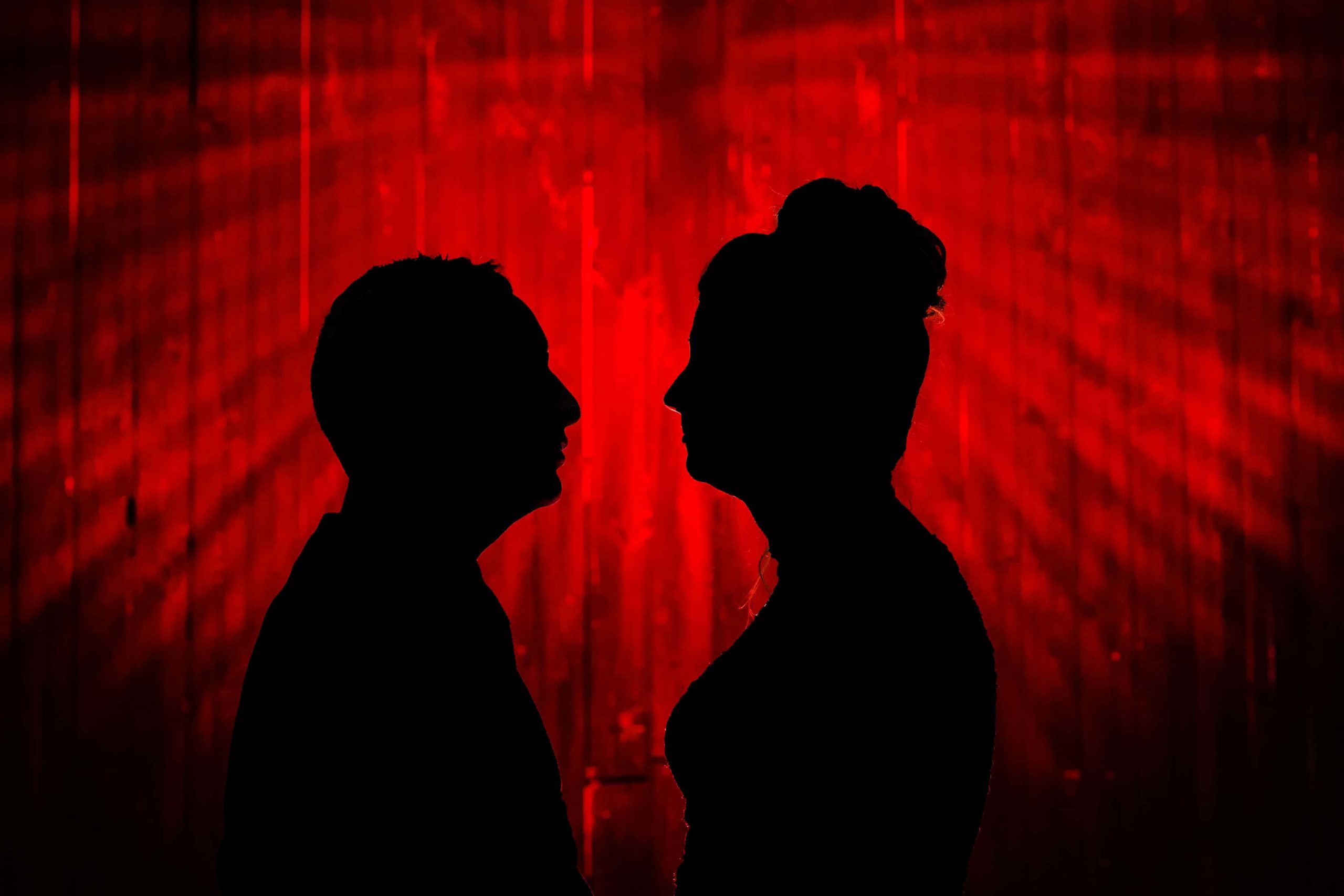
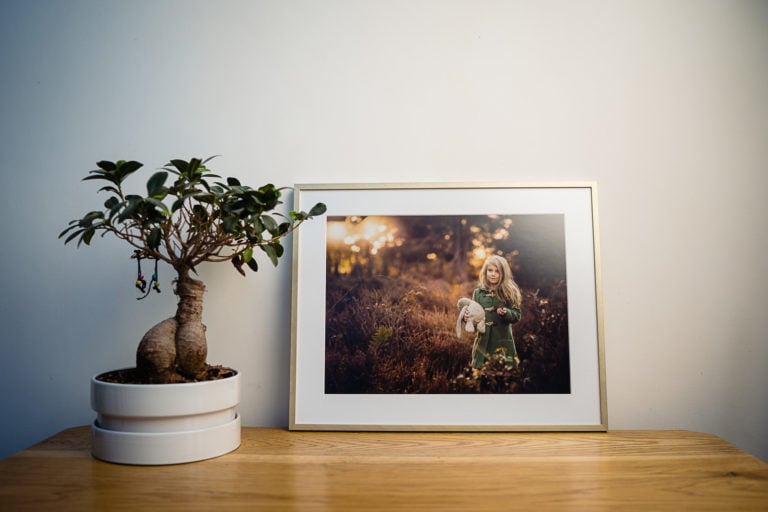
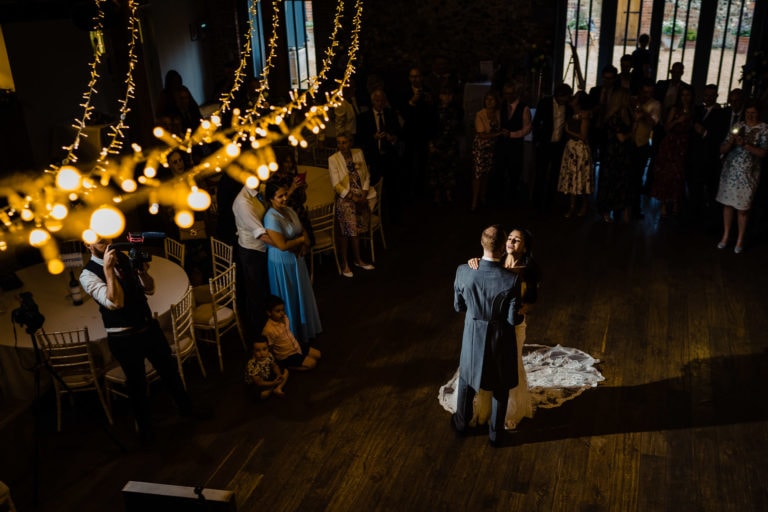
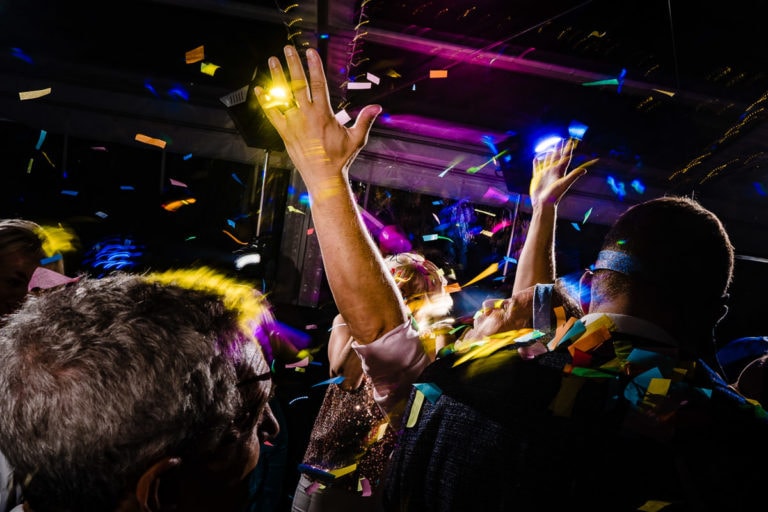
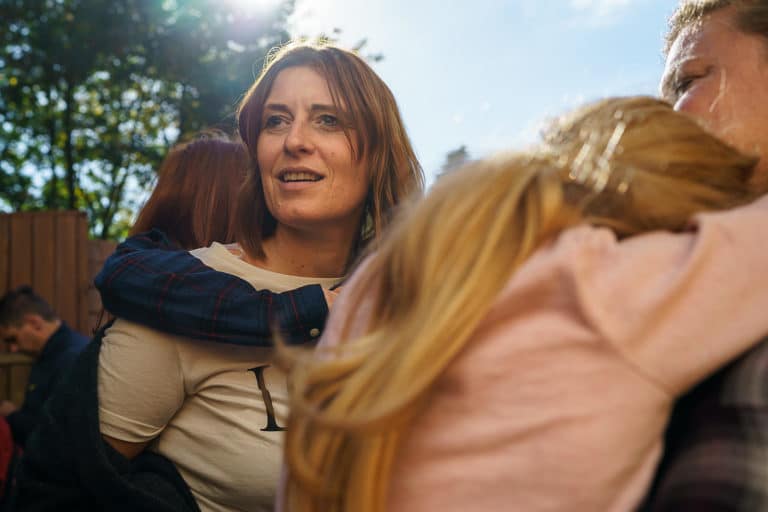
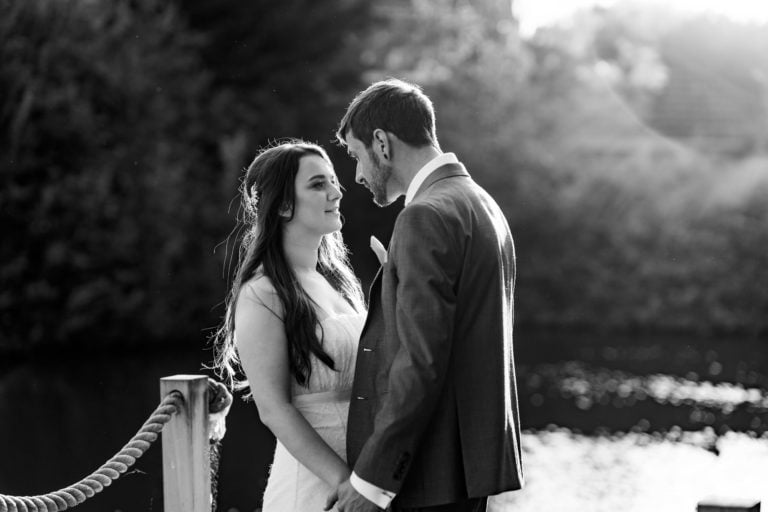
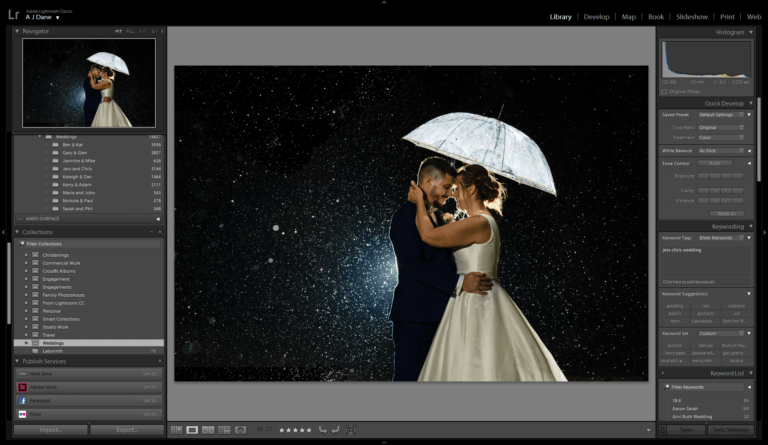
Lots of useful stuff here, great blog post Andy – and good point about the 20% photography, I think that’s the biggest misconception for new starters!
Great post Andy, I’m not a wedding photographer (too stressful for me!) so fascinating to hear a bit more from behind the scenes!
Great article Andy. I’m sort of moving into weddings, more only if I get asked. I went in through the ‘in at the deep end route’. I got asked about a wedding and I did try and put the client off by telling them that I hadn’t done a wedding before. To my suprise they came back and said, ‘great can we book you?’ Turns out they didn’t want a traditional wedding photographer.
They had told all of the guests that I hadn’t shot a wedding before and the registrar. Everyone was so helpful, the registrar even gave me advice on where to stand and when.
Be honest about what you can and can’t do, it will help you in the long run.
Chris
I think as long as you’re honest with your experience then that’s fine 🙂
Although, I don’t think many of us these days are what you’d call “traditional” wedding photographers. Some are still around and there’s definitely a market for it done well. But the trend is definitely for more documentary style work at the moment.
This is a great blog Andy. I would never want to be a wedding photographer (it doesn’t suit my skill set!) and I take my hat off to you because your photos are stunning. Great read.